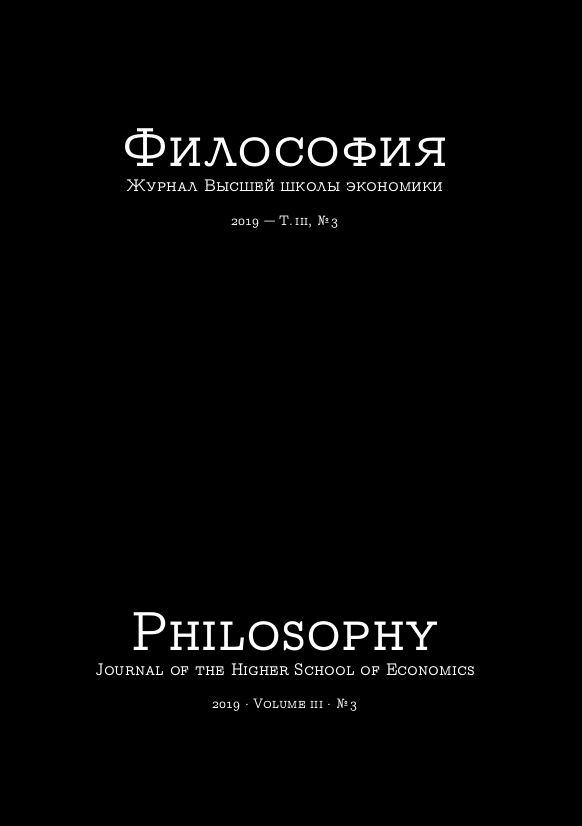Is It Morally Good to Form a Belief Under Insight as Sufficient Evidence for Belief Formation?
Abstract
In this paper, the author studies the question of whether it is ethically and epistemically acceptable to recognize such a specific kind of “mental” state as insight as to the basis for a reliable judgment. For these purposes, the author analyzes the term belief. She proposes to distinguish between confidence and conviction, and on the basis of this difference to determine opinion, faith, and knowledge, which is based on the idea of Immanuel Kant. Considering the “mental” states the following questions are discussed: (1) can it be objectively established whether the subject is in one or another “mental” state; (2) whether the subject cognizes the world adequately if he is going through some or another “mental” state. In order to test the introduced distinction’s efficiency, such “mental” states as migraine and hallucinations are considered. Finally, based on the introduced distinction between confidence and conviction, the concept insight (an act of genuine thinking) is investigated. As a final point, the author comes to the conclusion that insight is sufficient evidence for the knowledge of a special kind — metaknowledge about the world (transcendental knowledge).






